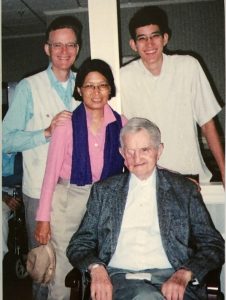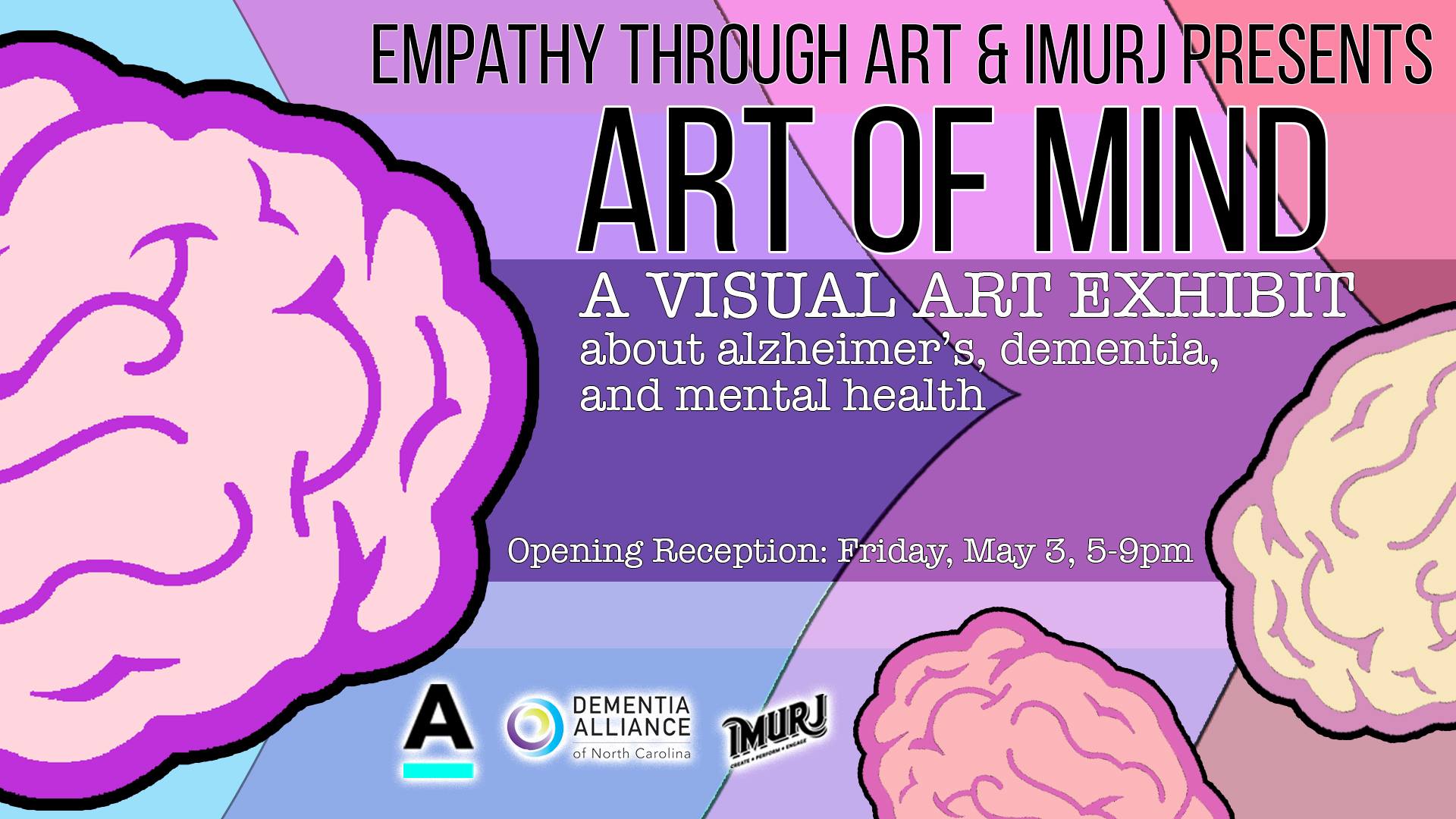Empathy Through Art
For those of us who have helped take care of someone with Dementia, we know how important it is to create and find moments of connection with our loved ones. But, as we watch them fade, it can be incredibly difficult to stay strong and not let our own pain distract us from seeking these out. Oftentimes, caregivers have given everything and need their own support systems and outlets for the emotions that build from these experiences. How do we create these moments in ways that don’t add more to our already full plates?
 My grandfather was diagnosed with dementia in his early eighties. He lived until he was 92. His slow decline over 10+ years was extraordinarily difficult for him and my family, but it wasn’t any one moment that was singularly painful – rather, it was the slow erosion of will and the consistent, gradually building pressure that had a lasting impact on my family. I remember feeling incredibly guilty at my grandfather’s funeral because I cried not only from my sadness to see him go, but also from relief. But I was sad to see him go. Even though he didn’t remember my name or who I was, I still found connections that stay with me to this day.
My grandfather was diagnosed with dementia in his early eighties. He lived until he was 92. His slow decline over 10+ years was extraordinarily difficult for him and my family, but it wasn’t any one moment that was singularly painful – rather, it was the slow erosion of will and the consistent, gradually building pressure that had a lasting impact on my family. I remember feeling incredibly guilty at my grandfather’s funeral because I cried not only from my sadness to see him go, but also from relief. But I was sad to see him go. Even though he didn’t remember my name or who I was, I still found connections that stay with me to this day.
Our connection was music. I play the piano because my grandfather played the piano. Every time my grandfather would pass a piano he would sit down and play one of his favorite pieces. The one I remember is Gershwin’s Rhapsody in Blue. He would forget it bit by bit over time, but could always manage to play the theme, even at the very end. I would play music for him and the rest of the assisted living community and sometimes there would be dancing and singing too. It was in these moments that I knew there was something still there – no matter how deep inside or far away, there was still a spark, just maybe not quite enough to light the fire. It would take me 10 more years to learn how to play the Rhapsody in Blue all the way through, but every time I play the theme I still think of my grandfather.
I personally believe in the power of art, music, dance, and other creative mediums to create not only these moments of connection, but also moments of understanding. That’s why we’ve started Empathy Through Art. We’re building a framework and process for using the creative mediums to talk about, understand, create empathy for, and build community around social challenges that we face today. We’ve partnered with the Dementia Alliance of NC on our first project focused on Alzheimer’s and Dementia. We hope that you will be part of it – join us on May 3rd from 5-9pm at Imurj in downtown Raleigh for our Art of Mind Opening Reception. We’ve brought together visual art on Alzheimer’s and Dementia from over 45 artists as well as music and spoken word performances on the topic. We hope to see you there!
Written by Charles Adair, Founder of Empathy Through Art
More about Friday’s event!

Come down this First Friday from 5 pm – 9 pm to see the ambitious, national exhibit; Art of Mind! Featuring over 50 artists of many disciplines, this exhibit also has a sister location at A Place at the Table Raleigh, just a few blocks away! The cost is free but donations will be accepted to support the project. Art will be for sale.
Imurj has partnered with Empathy Through Art, a non-profit launching this spring, to use art in all its forms to tackle the issue of Alzheimer’s and Dementia. Together, Imurj, Empathy Through Art, and the Dementia Alliance of North Carolina are bringing together artists, musicians, dancers, writers, sculptors, and more to share their work related to Alzheimer’s and Dementia. These works of art, while on exhibit, will serve as the foundation for a series of local, community-based events and projects on the topic, including a First Friday event in May, multimedia project created by local artists, and a fundraising event in the fall.

